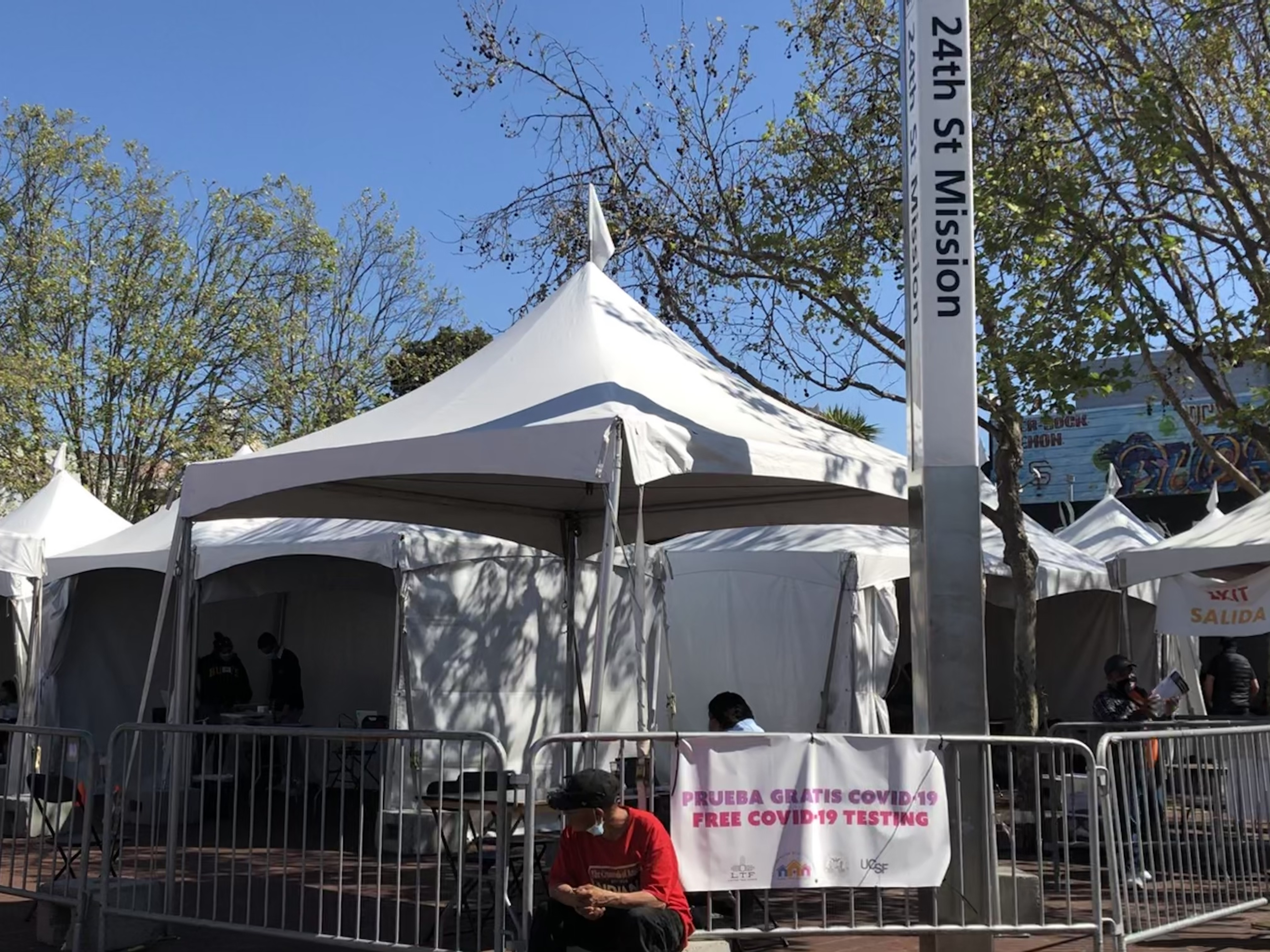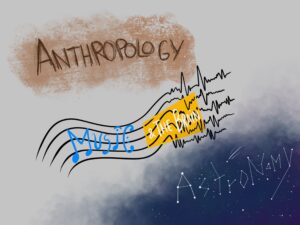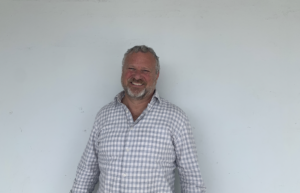Volunteers have been a driving force in helping Mission District residents receive support throughout the COVID-19 pandemic and have provided key information about the spread of COVID-19 in the Bay Area. At the 24th Street BART station, these volunteers have been swabbing community members for COVID-19 and reporting results to scientists.

Photo by Keira Nakamura
The 24th Street COVID-19 testing site was created collaboratively by UCSF, the Latino Task Force, the Bay Area Phlebotomy and Laboratory Services, as well as the city and state. Collectively known as Unidos en Salud, this group provides free COVID-19 testing without the need for an appointment.
Unidos en Salud emphasizes community engagement. The testing site, which is set up in tents every Sunday through Wednesday, is organized by volunteers, many of whom are high school, college and nursing school students or medical exam assistants.
“At first it was really scary because you’re around so many people who are positive, but we’re really good about PPE and making sure everyone is safe,” said Joselin Payan. Payan initially started as a volunteer and is now the director of the testing site.
These volunteers and the test results they receive play an important role in understanding the spread of COVID-19. Lead scientists at UCSF became interested in observing COVID-19 cases in the Mission district early into the pandemic.
“It was noticed by doctors at UCSF that most people who were hospitalized for COVID were of Latinx descent; they realized we needed to do something about that because COVID was clearly hitting different populations very disproportionately,” said Genay Pilarowski, a lead scientist at the site. “There was testing done in different parts of the city that found that the Mission had the highest rates of infection, and so it was really important to help provide low-barrier testing which was not being provided by anyone else.”
Around 200 tests are administered every day the site is open. Unidos en Salud also encourages testing asymptomatic people, in order to ensure that they do not transmit the virus unknowingly.
Volunteers at the testing site have adapted to using new testing methods to quickly and effectively test community members for COVID-19. During the initial stages of testing in the Mission, volunteers used polymerase chain reaction (PCR) testing, a method for amplifying DNA. COVID-19 is an RNA virus, so the enzyme reverse transcriptase (RT-PCR) is used to detect COVID-19. This isolates the RNA, converts it to DNA and PCR is used to amplify the DNA and detect primers specific to COVID-19. However, PCR tests have to be sent to a lab and results can take one to three days, which means that a person may transmit the disease while waiting for test results.
In October of 2020, the site started to use antigen tests that detect a protein on the coronavirus using a technology called a lateral flow assay, where the protein is captured by antibodies. Antigen tests only take 15 minutes to get a result, but they are less sensitive than PCR tests.
Recent technological advances allow the testing site to now use loop-mediated isothermal amplification (LAMP) PCR — a variation of PCR testing. This technology is a lot cheaper since it only needs to stay at one temperature, and thus can be used with a small, portable machine. It also only takes 20 minutes to receive results and is more sensitive than antigen testing. LAMP PCR enables Unidos en Salud to efficiently and effectively test community members for COVID-19.
In addition, the testing site collects swabs from people who test positive with LAMP PCR in order to sequence their results in a lab. Sequencing provides the exact string of nucleotides from the COVID-19 tests and helps UCSF scientists track the populations affected by different variants of COVID-19 present in the area.
Certain COVID-19 variants can be more deadly than others, such as B117, which was first identified in the U.K., or can have a higher attack rate, which means that it is more contagious, such as San Francisco’s L452R variant. While few cases of B117 have been found through sequencing, the L452R variant has been found in around half of all the positive samples from the testing site. UCSF scientists are still working on monitoring this variant to learn more about its rate of infection.
In addition to testing, Unidos en Salud works to support community members that test positive. A disclosure team is always present at the site to reach out to anyone who has a confirmed case. They call each person with COVID-19 and ask about their symptoms to figure out how long they should isolate. The disclosure team then ensures that the person with COVID-19 has a hotel room if they are unable to isolate alone at home, provides food or disinfectant supplies to prevent the spread of the coronavirus and informs the Department of Public Health in order to conduct contact tracing.
During the holiday season of 2020, the COVID-19 positivity rates in the Mission were at 4.4%, compared to San Francisco’s 2.9% average. This was primarily due to the high number of low-income essential workers in the Mission who were unable to shelter-in-place.
Currently, San Francisco has around a 1% positive test rate, and the positivity rates from the testing site have decreased to less than 2%. With the efforts of Unidos en Salud helping the community and the decreasing positive cases of COVID-19, the group’s priorities have shifted to providing vaccinations.
Across the street from the BART station, tents have been set up for vaccinations. However, Unidos en Salud does not have enough vaccinations for the entire community, so a primary role for the group is to assist with vaccine registrations and refer people to other vaccination sites in San Francisco such as the Moscone Center and City College.
In the past couple of months, COVID-19 testing has slowed down at the site as more people focus on receiving vaccines. However, Unidos en Salud are apprehensive of another spike in COVID-19 cases and hope to continue providing these tests for the duration of the pandemic to keep the community informed and safe.





